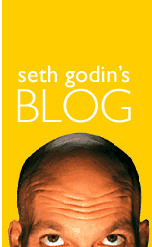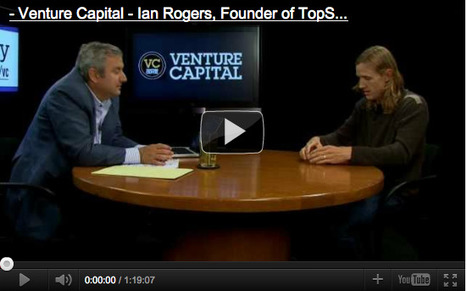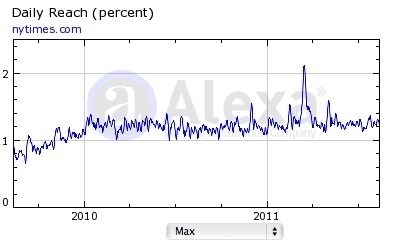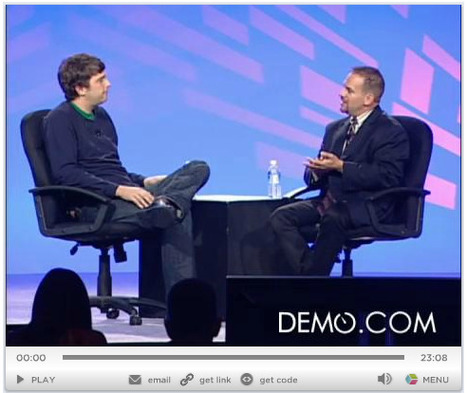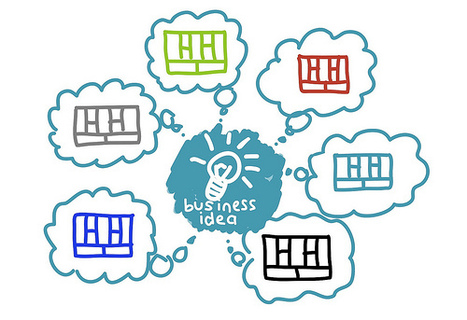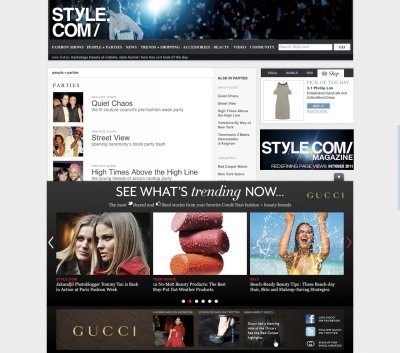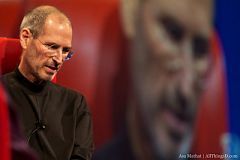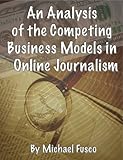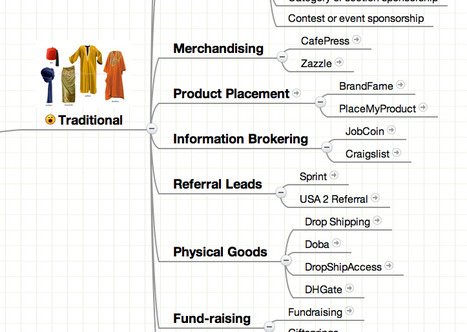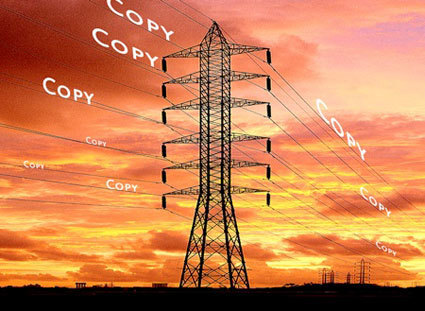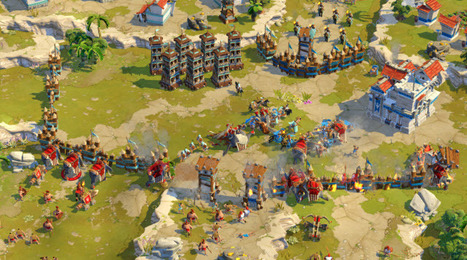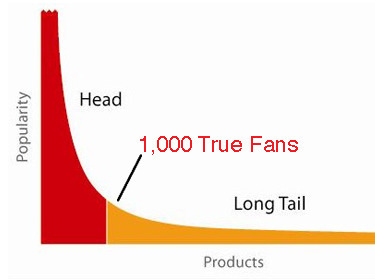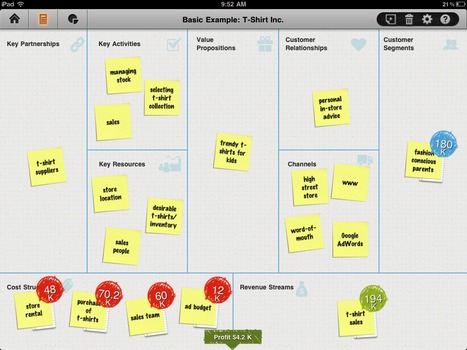 Your new post is loading...
 Your new post is loading...

|
Scooped by
Robin Good
September 1, 2011 1:57 AM
|
One of the most hotly debated topics among online marketers and bloggers is how much we should give away for free. For instance, my blog is built on giving out free marketing information. Others give away free e-books or other downloads. But as introduced in yesterday’s guest post from Rebecca Cicione, the business model being used by Noisetrade is one that might make sense. Understand this: I”m not here to say that free is the way to go for everyone. But it seems to be a smart move for musicians, particularly indie musicians who are struggling to get their music heard and make a living. In fact, you can read plenty of blog posts telling you that we need to stop giving things away for free, such as one from my friend Erica Allison, If You Want Me to Play, Please Ask Me to Pay, as well as John Jantsch’s post 5 Reasons Free is Hurting us All. And I’m not necessarily disagreeing with them. I think there is real value in offering something for free, if done properly. And it’s not about giving everything away for free.

|
Scooped by
Robin Good
September 3, 2011 8:13 AM
|
Does anyone read Time or Newsweek (being sold to anyone who will take them) any more? And when they disappear, who will really miss them? The problem is that they are both slow and general. The world, on the other hand, is fast and specific. Is there a business here? While there are still people hoping to make a living writing a blog (not as a tool for something else, but as an end into itself), that's awfully difficult to do. Micro-magazines, on the other hand, feel very different to me. They have elements that make them very attractive to advertisers and readers. There's room in the market for 100,000 profitable micro-magazines. Why not have one about Aruba, for example? If all the people who vacation in Aruba could read about the island in detail every month, read about restaurants, resorts and politics, for free, in an easy to share format... Multiply this by every destination, every interest group, every type of profession (how about a micro-magazine for ethnobiologists?)

|
Scooped by
Robin Good
August 30, 2011 6:28 PM
|
Mobile payments, though they have yet to take off substantially in North America, are a hot topic, with major companies like Google joining startups in the space and hoping to grab a slice of billions of dollars in potential transactions. Research firms disagree on the current size of the nascent market, but project strong growth in mobile payments and their users. Juniper Research estimated in July that worldwide mobile payment volume would reach $240 billion this year. This forecast included both remote mobile payments (that is, payments for both digital and physical goods to a remote merchant via an e-commerce system) as well as payments made with a mobile phone at the point of sale, such as with a near-field communications device.

|
Scooped by
Robin Good
August 28, 2011 4:09 AM
|
Ian Rogers is always worth checking out for his views on music industry business models and, even if you're not involved with music, you can learn a lot about web business models from his perspective. He has a very clear take on what's happening with disruptive innovation and the music industry that is relevant to anyone considering legacy business models and their difficulties adapting to to a constantly shifting digital landscape.

|
Scooped by
Robin Good
August 27, 2011 4:56 PM
|
Monetizing digital content requires a different mindset than monetizing analog content. The marginal cost of another unit of digital content is nominal. Unlike printing and delivering a paper, serving up another page view doesn’t cost the New York Times much. So while the New York Times must charge its customer to recieve the paper, it doesn’t necessarily need to charge a customer for every page view, particularly since they do run ads on every page served.

|
Scooped by
Robin Good
August 27, 2011 5:36 AM
|
Limits on sharing and borrowing are limiting widespread e-book adoption. Remove those barriers, new research says, and the e-book market will expand even faster than it already has. Here’s that and some other new statistics…

|
Scooped by
Robin Good
August 25, 2011 2:05 AM
|
In previous installments of this series, we’ve looked at the growing wave of tech entrepreneurs, and how they’re getting a variety of new businesses off the ground. In most cases, those businesses tend to follow a well-defined trend: coming up with a great idea, looking for funding and building up a user base, before trying to generate profits. Mr. Tai did things differently. For years, the commerce grad worked a lucrative day job on Bay Street. Indeed, he readily admits he didn’t know all that much about the car or technology industries when he quit his day Job in January to focus full-time on Unhaggle. So he started consulting with everyone in the industry he hoped to enter – from car dealers to manufacturers to people in the financing industry.

|
Scooped by
Robin Good
August 20, 2011 12:41 PM
|
It’s tough being an online content publisher these days.
While the flow of advertising dollars into digital continues to increase—online advertising spending is expected to grow 20% to $31.3 billion in 2011 in the U.S. alone, according to eMarketer—it has not resulted in higher CPMs for publishers.
Rather, the increase in spending is spread thin across a crowded field of technology middlemen (i.e. ad networks, exchanges, data providers, DSPs, etc.).
And it is largely following increased audience usage of digital media as opposed to resulting in larger payouts per page view for content creators.

|
Scooped by
Robin Good
August 20, 2011 12:14 PM
|
Groupon has become one of the Web’s most important start-ups. The company has had astonishing success by offering a single deal each day via email to people who sign up. Personally, I’ve become obsessed with my daily Groupon. But Mason’s appearance this week offered several lessons, I think, for people who are building start-ups with a news and media focus.

|
Scooped by
Robin Good
August 20, 2011 8:52 PM
|
Will people pay for quality digital content? It’s an argument that has been on the table for quite some time, with naysayers pointing towards downloads of discographies instead of paying attention to concrete purchasing decisions. Last week, Apple released its new version of Mac OS X “Lion”, and as per usual, Ars Technica’s John Siracusa delivered a whopping 27,300 word review of it. His 19-page story, published last Wednesday is available for free online and has already received over 3 million page views. In a telling turn of events, Ars Technica also decided to sell his review as a $5 Kindle ebook. In its first 24-hours on sale, the ebook sold 3,000 copies. And at $5 a pop, that’s a cool $15,000 in revenue in just one day.

|
Scooped by
Robin Good
August 20, 2011 12:08 PM
|
Google’s CEO Eric Schmidt had a surprise when he walked into Larry Page’s office in 2002. Page is the co-creator of Google and the man who gave his name to the idea at the company’s foundation: its PageRank search algorithm. But Page had something rather different to show Schmidt: a machine he’d built himself which cut off the bindings of books and then scanned their pages into a digital format.

|
Scooped by
Robin Good
August 20, 2011 12:11 PM
|
Felix Salmon has a couple great posts on the New York Times' paywall. He notes that it has been successful and explains why. Felix says:
Yes, the NYT paywall is porous — but that’s a feature, not a bug. It allows anybody, anywhere, to read any NYT article they like. That makes the NYT open and inviting — and means that I continue to be very happy to link to NYT stories.
I've been a fan and a proponent of porous paywalls since studying the FT's model a few years back and was very pleased to see the NY Times go with the FT's model.
Monetizing digital content requires a different mindset than monetizing analog content. The marginal cost of another unit of digital content is nominal. Unlike printing and delivering a paper, serving up another page view doesn't cost the New York Times much. So while the New York Times must charge its customer to recieve the paper, it doesn't necessarily need to charge a customer for every page view, particularly since they do run ads on every page served.

|
Scooped by
Robin Good
August 20, 2011 12:44 PM
|
The Business Model Generation is about people who strive to defy outmoded business models. They are visionaries, game changers, and challengers who want to design tomorrow’s enterprises. To succeed on this journey they will require new tools, such as the Business Model Canvas and Steve Blank’s Customer Development. In this post I outline how they fit together. This post comes mainly as a reaction to the various attempts by others to adapt and merge the Business Model Canvas with Customer Development for the entrepreneurial context. While it’s great and fascinating to see how people are tinkering with Steve’s and our method to adapt them for their start-ups, I am also worried that they lead young companies down the wrong path.
|

|
Scooped by
Robin Good
August 31, 2011 4:37 PM
|
The pundits who post about unsustainable online business models or the general demise of the publishing industry often position their arguments in stark, either/or terms: print vs. online, paid vs. free, etc. etc. TechCrunch’s Paul Carr is the latest to paint online publishing with an overly broad stroke. He cites the layoff of Slate media critic Jack Shafer as the latest example of why the “grand experiment in free online content has failed.” Online advertising, he explains, “is a numbers game. And, even on niche sites, the number of salable page impressions required to even break even is huge. There are just too many pages of content being produced for advertising to remain a viable long-term business model.”

|
Scooped by
Robin Good
August 31, 2011 10:36 AM
|
Ten years is, of course, a long time in media. Ten years ago, if you wanted to download some music, your best bet was Napster or one of the filesharing systems such as LimeWire or KaZaA. There were legal services, but they were so dire they wouldn’t pass much muster today: there was PressPlay and MusicNet (from rival groups of record companies), which required $15 a month subscriptions for low-quality streaming (when most people had dialup connections, not today’s broadband). You couldn’t burn to CD. They were stuffed with restrictive software to prevent you sharing the songs. What happened? Steve Jobs happened, mainly.

|
Scooped by
Robin Good
August 29, 2011 1:39 AM
|
Author Michael Fusco explains how news rooms have overcome the initial hiccups of the transition to new medias and are now seeking to maximize profitability.
This is very exciting news, for publishers and consumers! Intro: "BookRiff CEO Rochelle Grayson explains how her company will open new distribution and revenue streams for curators and content owners. Ever want to compile your own cookbook, travel guide or textbook? Has your publisher edited out sections of your book you'd like to share with interested readers? Publishing startup BookRiffaims to solve these problems by creating new ways to access and compile content. In the following interview, Rochelle Grayson, CEO of BookRiff, talks about how BookRiff works and how it can benefit publishers and consumers. She says her company is based on an open market concept, allowing publishers to sell the content they want at prices they set and consumers to buy and customize that content as they see fit. BookRiff will be featured in the next TOC Sneak Peek webcast on August 25. What is a "Riff"? Rochelle Grayson: A Riff is a remix of chapters from published books, essays, articles, or even one's own content. The concept behind BookRiff is to create an online platform that allows consumers and publishers to remix and to resell content, while ensuring that all original content owners and contributors get paid. http://radar.oreilly.com/2011/08/bookriff-curator-aggregation.html
Via janlgordon

|
Scooped by
Robin Good
August 27, 2011 5:40 AM
|
A reference map outlining some of the many online business and monetization models available to Internet entrepreneurs, startuppers and web publishers.

|
Scooped by
Robin Good
August 25, 2011 5:08 AM
|
I am tired of same old media headlines each time a new gadget comes out: "Is [insert new gadget] going to save old media/newspapers?" or "Is [insert new gadget] set to become a new business model for old media?" It should be clear to everyone that no new technology on its own will save the newspapers – what they need instead are smart models of delivery that cater to their customers first, then their shareholders. In the modern multi-gadget world, I don’t want to get all my news on a single gadget, such as the iPad, or from a single source, like Murdoch’s "tablet newspaper" The Daily. I want to be able read a range of news from a range of sources where and when I want, be it on my laptop, iPad, or in print. It shouldn't be 'either/or' but 'both/and'.

|
Scooped by
Robin Good
August 24, 2011 3:02 AM
|
The internet is a copy machine. The digital economy is thus run on a river of copies. Unlike the mass-produced reproductions of the machine age, these copies are not just cheap, they are free. Our digital communication network has been engineered so that copies flow with as little friction as possible. Indeed, copies flow so freely we could think of the internet as a super-distribution system, where once a copy is introduced it will continue to flow through the network forever, much like electricity in a superconductive wire. We see evidence of this in real life. Once anything that can be copied is brought into contact with internet, it will be copied, and those copies never leave. When copies are super abundant, they become worthless. When copies are super abundant, stuff which can't be copied becomes scarce and valuable. When copies are free, you need to sell things which can not be copied. Well, what can't be copied?
Here is the answer: "intangibles" or "regenaratives".

|
Scooped by
Robin Good
August 20, 2011 12:38 PM
|
A new age is dawning in the video game business, and Microsoft wants to be part of it. Today, Microsoft is formally launching its Age of Empires Online game as a free-to-play online-only title. That means users can start playing the game online for free and can purchase upgrades and virtual goods with real money. While free-to-play games have nibbled at the edges of the game business for a while, Age of Empires Online is a major release that validates the business model. The mainstream of Age of Empires series has sold more than 25 million copies since 1997. This new title really takes free-to-play games to a new level because of the quality of the game play, graphics and depth.

|
Scooped by
Robin Good
August 20, 2011 12:35 PM
|
Mark asked us to weigh in on an interesting post on Google+ by Felicia Day, wondering about the future of video content. Day, of course, has been quite successful in embracing the online community as well as new and different business models. She lays out the question in response to the news of Fox and others deciding to delay legal options and how that's likely to drive more people to unauthorized file sharing. She notes that, from a business perspective, this seems scary, but she also seems to recognize that it's reality (rather than denying it, as some people do):

|
Scooped by
Robin Good
August 20, 2011 7:40 PM
|
"DJ Defined" web and mobile app radio service Dubset recently received $500k in funding on top of $100k and it looks like they're going to need it. They've developed unique technology for identifying songs in dj mixes so the artists get paid and the service is free for both djs and listeners. Understandably folks have been wondering how Dubset will get their cut. It turns out the answer is scattered throughout the site. I can see why people like Dubset. The site looks great, there are a growing range of dj created mixes and you don't have to show up at a particular time to enjoy whatever it is you're looking for. Dubset has developed widely noted "MixScan" technology for identifying tracks within DJ mixes and for paying artists. That means they are also paying technical personnel and, given that they're a streaming music service, must have some hefty hosting fees. So where's the money?

|
Scooped by
Robin Good
August 20, 2011 12:13 PM
|
The long tail is famously good news for two classes of people; a few lucky aggregators, such as Amazon and Netflix, and 6 billion consumers. Of those two, I think consumers earn the greater reward from the wealth hidden in infinite niches. But the long tail is a decidedly mixed blessing for creators. Individual artists, producers, inventors and makers are overlooked in the equation. The long tail does not raise the sales of creators much, but it does add massive competition and endless downward pressure on prices. Unless artists become a large aggregator of other artist's works, the long tail offers no path out of the quiet doldrums of minuscule sales. Other than aim for a blockbuster hit, what can an artist do to escape the long tail? One solution is to find 1,000 True Fans. While some artists have discovered this path without calling it that, I think it is worth trying to formalize. The gist of 1,000 True Fans can be stated simply: A creator, such as an artist, musician, photographer, craftsperson, performer, animator, designer, videomaker, or author - in other words, anyone producing works of art - needs to acquire only 1,000 True Fans to make a living.

|
Scooped by
Robin Good
August 20, 2011 12:09 PM
|
In order to understand this application’s raison d’être, you need to know about the business modeling concepts as illustrated, figuratively and literally, in the book Business Model Generation by Alexander Osterwald and Yves Pigneur. ISBN 978-0-470-87641-1. If you are thinking of starting your own business, or already own or run a business, no matter how small, for profit or non-profit, understanding the concepts in The Business Model Generation is imperative.
|



 Your new post is loading...
Your new post is loading...



